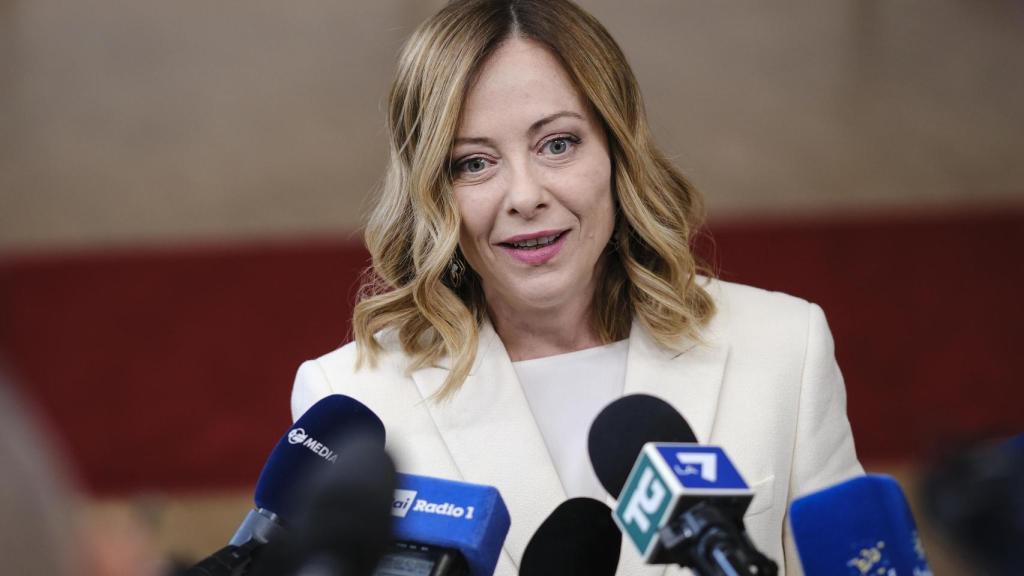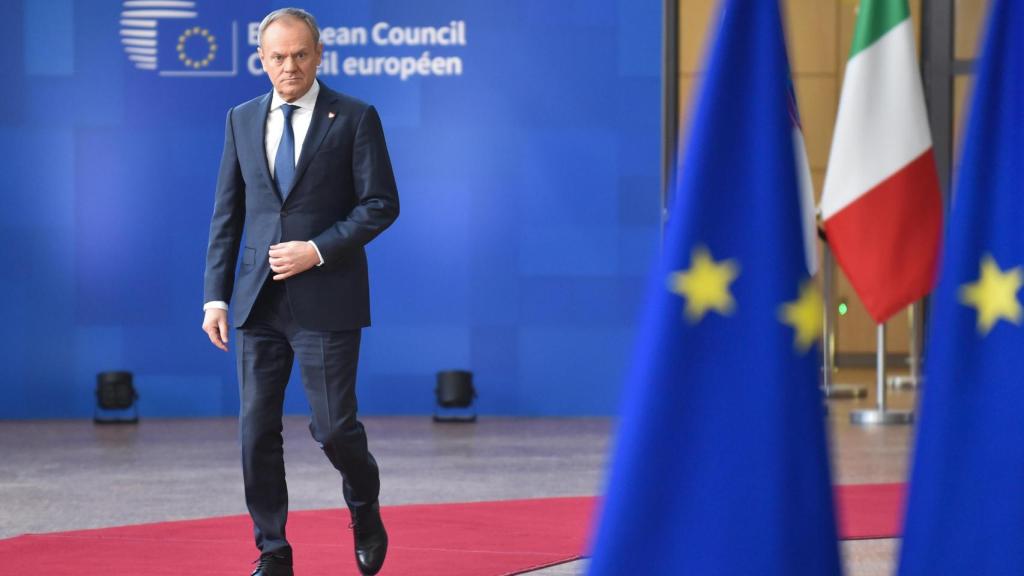The immigration alarm has become the authentic “main course” of the EU leaders’ summit taking place this Thursday in Brussels, to the point of overshadowing the wars in Ukraine and the Middle East. A debate that Pedro Sanchez face in an uncomfortable isolation position. Although Spain is the Member State that registers the greatest increase in migratory pressure through the Canary Islands route (where the number of arrivals has doubled during the first nine months of the year), the President of the Government has been left practically alone in his refusal to toughen community migration policy and accelerate the expulsions of irregular migrants.
At the opposite end of the equation, the radical right government of Giorgia Meloni claims victory. The agreement that Meloni closed with Albania to create migrant detention and deportation centers there, outside EU territory – initially received with scandal in Brussels – has become a model to follow. Even the president of the Commission, Ursula von der Leyenis open to extending it to the entire Union, as explained in the letter prior to the European Council that he addressed to all heads of State and Government. In this letter, the German company also announces that it will present a new legislative proposal to toughen the return directive and accelerate the repatriations of irregulars.
“Regarding deportation centers, Spain has expressed its position against contemplating the creation of centers in third countries. And of course what we are going to continue defending in Europe is the humanitarian and solidarity application of the Migration and Asylum Pact. Spain will continue working on a line that supports regular and safe migration routes and also working with the countries of origin and transit and against this mafia that traffics in people,” said the minister spokesperson, Pilar Alegría.
At the Brussels summit, Sánchez will defend advance the entry into force of the Migration Pact, whose full application is not scheduled until 2026. A regulation whose negotiation took more than 10 years and which was concluded under the Spanish presidency of the EU, at the end of 2023. Although the majority of Member States consider that the Pact already has been overcome by eventsthe Government maintains that it cannot be said to have failed because it has not yet been put into practice. The 10 legislative texts that comprise it represent a proper balance between solidarity and responsibility that must be preserved. Putting emphasis on short-term security measures will not have the support of Spain, explain government sources
“I am proud that Italy has become a role model. I have welcomed with great satisfaction the attention that, in recent months and weeks, various representatives of European and non-European governments, of different political colors –France, Germany, Sweden, United Kingdom, to name just a few– have lent to our policies, demonstrating the pragmatism and effectiveness that have marked our action in the fight against illegal immigration,” Meloni celebrated for his part in the debate held this Tuesday in his country’s Parliament.
The Italian Prime Minister has called a mini-summit prior to the start of the European Council with “the Member States most interested in the migration phenomenon”. Poland and the Netherlands have already confirmed their attendance. Pedro Sánchez does not plan to attend, according to the sources consulted.

Italian Prime Minister Giorgia Meloni during a summit in Brussels
Precisely, the Polish Prime Minister, Donald Tuskwho was president of the European Council and belongs, like Von der Leyen, to the European People’s Party, has been one of the last to announce a tightening of its immigration policy. Tusk says he will suspend the right to asylum in order to protect himself from attacks by Russia and Belarus, which are using migrants as weapons on the Polish border. “The migratory strategy adopted aims regain control and ensure security. A difficult decision, but very necessary and long awaited,” has written in his X account.
Brussels has warned Poland that protecting its border against migratory attacks from Russia and Belarus does not exclude respecting the right to asylum. At the same time, Von der Leyen herself recognizes in her letter the need to take more measures to address this situation. “Russia, and Belarus as proxyare not only engaged in a war of aggression against Ukraine, but are also putting pressure on the EU’s external border using people as weapons, undermining the security of our Union. Need a clear and determined European response to address these activitieswithout allowing Russia and Belarus to use our values against us,” writes the German.
“In recent years, the immigration debate has evolved to the right. I remember that in one of the first European Councils dedicated to immigration we could not even talk about European funding to protect borders. And now this is something completely accepted that is not even debated. Explore innovative ways to combat illegal immigration -the euphemism used in Brussels to talk about migrant centers outside the EU- has been included in the strategic agenda (for the new legislature). That would have been inconceivable a few years ago. The dynamics and points of view are changing,” says a senior European diplomat who participates in the preparation of the summits.

Polish Prime Minister Donald Tusk during a European Council
Despite this immigration alarm, The latest Frontex data speaks of a general reduction in pressure. During the first 9 months of 2024, the number of irregular entries across the EU fell by 42%, reaching 166,000 people. The largest decreases were observed on the Western Balkan routes (-79%) and the Italian Central Mediterranean route (-64%), which still remains the most important with 47,710 arrivals. The most notable exception is the Canary Islands route, where irregular entries rose by 100% to reach 30,616.













Add Comment